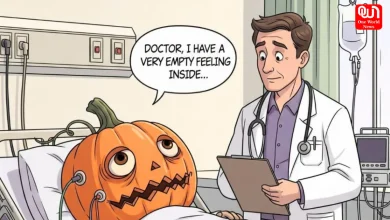To Do or Not to Do: Dealing With Procrastination

To Do or Not to Do: Dealing With Procrastination
“To be or not to be…”
~ William Shakespeare, Hamlet
Perhaps one of the greatest procrastinators of all time is Hamlet who keeps putting off his final act of revenge on his uncle while all the while lamenting the existential conflicts of life. Shakespeare draws outthe irony by portraying Hamlet’s inability to act as an inherent character flaw, in a play which is an assemblage of acts. Though he finally does kill Claudius and avenges his father’s death but by then his mother, his beloved Ophelia and many other characters have already died.

Webster’s dictionary defines procrastination as “the act or habit of procrastinating, or putting off to a future time”. What is this dilatoriness? Why this delay? Many of us have, at some point or the other procrastinated, perhaps, when it was a difficult exam or a deadline approaching. There is something very powerful about this phenomenon of procrastination which grips one, making it impossible to begin. It operates in crafty ways. So when you have a deadline to meet, you would suddenly feel the need to complete previously left incomplete tasks. Or, somehow the most mundane activities would occupy your attention which you wouldn’t even have noticed otherwise. Maybe a movie catches your fancy just that moment and you feel the need to watch it till the end.
A famous English writer, Samuel Johnson, was notorious for his procrastination. Incidentally, he wrote on procrastination, “one of the general weaknesses, which in spite of the instruction of moralists, and the remonstrance of reason, prevail to a greater or less degree in every mind.” The comical twist to this tale is that he was writing this at the last minute when the press was waiting outside for it.
While it is a common behavioral pattern that we all display, it sometimes ends up becoming chronic and begins to hamper with the daily functioning of the individual. At this point, it is essential to identify when does procrastination become chronic?
• Do you find yourself surfing the net or hounding the social networking websites when your deadline is due?
• Do you find yourself re-reading your syllabus or the things you need to do instead of actually doing them?
• Do you find yourself doing things that are low priority as opposed to the ones that are more important?
• Do you constantly attribute the reasons for your delay or incomplete work on to others?
• Are you frequently touted as being careless and irresponsible when you feel the exact opposite about yourself?
• Do you often hear yourself complain that the “mood” and the “setting” aren’t right for your creative juices to start flowing?
If your answer is yes to most of the statements, then it’s possible that your habit of procrastination is turning into a chronic one. Chronic procrastination has visible effects on the psychological and social areas of the affected individual’s life. It has been shown through research that there’s often an underlying psychological conflict or disorder behind chronic procrastination. It leads to stress, anxiety, guilt and other related health problems.

Irrationality has also been one of the inherent features of procrastination. It is evident in the forms of excuses and rationalizations that people give to themselves as well as to others to justify themselves. It further gets heightened because, for one, the people themselves do not realize that their habit of procrastinating is becoming pathological. Secondly, even when they are able to identify it, they still aren’t able to seek help for the same because people around them do not believe the struggles they are going through and instead label them as lazy and non-ambitious. It is essential to be sensitive to people’s inabilities and difficulties as they may be conveying more than what’s on the surface. Chronic procrastination has been found to be linked with many serious psychological disorders such as depression and ADHD.
Physiological basis for the same have been found as well in the prefrontal cortex, the part of the brain responsible for executive functions like planning, impulse control and attention, and for filtering out distracting stimuli. In case of damage to the prefrontal cortex a decrease in attention and an increase in procrastination follows.
Procrastination is also understood as the manifestation of defense mechanisms that people employ in order to decrease anxiety. Avoidance is a common defense a procrastinator use along with denial. Interestingly, humor is also a defense people often use, to dispel the tension that clouds their indecision and inability to do the task at hand.
Another interesting defense employed by people who procrastinate is valorization, that is, the act of highly exaggerating the tremendous amount of efforts they put in to complete the task at the last possible moment and how that is a measure of their greatness.
All these psychological, physiological and social manifestations of procrastination have negative undertones and consequences for the individual. However, there is also a flip side to this. Procrastination is sometimes also a result of perfectionism, seen in many famous artists and writers. Writers block many a times reflects itself in the form of procrastination. Victor Hugo, the famous writer and poet, whose popular work includes Les Miserables, employed a unique way to avoid procrastination. He would strip himself off all his clothes and hand them over to his servant who was instructed to not return with them until an appointed hour, till he gets the work done.
The much acclaimed renaissance artist, Leonardo Da Vinci, who dabbled not just in the arts of aesthetics, but explored the fields of science, mathematics, architecture, engineering etc. held the reputation of being a daydreamer who doesn’t get any work done. His head full of ideas swimming around wouldn’t rest on any one topic and he had various unfinished projects. The famous Mona Lisa took him sixteen years to complete. In his later years, it was found that he was quite dismayed about the numerous projects that he had intended to complete but could never get around to. Perhaps life seems too short when your ideas are so brilliant. Or maybe, for some individuals deadlines and mounting pressure works best. They thrive under pressure and it brings out their true creative potential.

Whatever may be the case, there are consequences to procrastination and most aren’t positive. Even if your true creative potential surfaces under pressure, sometimes the effort goes wasted as the time has gone. So here is a list of techniques you could use that would help you break the shackles the habit of procrastination creates.
• Set up a reward for yourself.
In many cases procrastination occurs because of the unpleasantness of the task at hand, in which case setting up a reward at the end of the task works wonders. So the next time you have that terrible assignment to complete promise yourself that you’ll order in your favorite pizza the moment you are done with it.
• Focus on starting, rather than finishing.
Rather and sitting around and planning on how you will accomplish the task, focus a major chunk of your energy on starting it.
• Break a long project down into short tasks.
This a realistic way of achieving a set target or goal for a procrastinator. Break the project into small and short task to help you manage resources better, both physical and mental.
• Make it fun!
Instead of working continuously and focusing on the end, take frequent breaks and do the things you enjoy. This way you will not feel that the work is monotonous and tiresome.
• Don’t place too much pressure on yourself.
“This has to be perfect, I can’t mess this up.” Its things like these that make you give up even before you start. So don’t put too much pressure on yourself. Relax and focus on the work at hand and not its perception by others.







